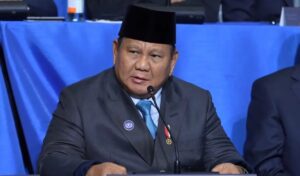Indonesia, China Agree to Boost Cooperation on Giant Sea Wall and High-Speed Railway Projects

Jakarta, The Gulf Observer: Indonesian President Prabowo Subianto and Chinese President Xi Jinping have agreed to advance cooperation on major infrastructure projects, including the Giant Sea Wall and the Jakarta–Surabaya high-speed railway, officials confirmed this week.
Coordinating Minister for Infrastructure and Regional Development Agus Harimurti Yudhoyono said the discussions took place during Prabowo’s bilateral meeting with President Xi in Beijing on Wednesday, which focused on Indonesia’s long-term development agenda.
“One of the issues discussed with President Xi Jinping was cooperation in building future infrastructure, including the Giant Sea Wall and the Jakarta–Surabaya high-speed railway,” Yudhoyono told reporters after a limited cabinet meeting at the Merdeka Palace in Jakarta on Thursday. He added that President Prabowo would convene a special ministerial session to address financing and technical aspects, which he himself would oversee.
The Indonesian government regards the Giant Sea Wall, projected to cost USD 80 billion, as a priority program to safeguard Jakarta and other coastal areas from rising sea levels and tidal flooding linked to climate change. Officials noted the project would be developed in multiple phases under a public-private partnership model, combining state budget allocations, private sector involvement, and international cooperation. Indonesia has already offered investment opportunities in the sea wall project to China, South Korea, Japan, and several European nations.
The Jakarta–Surabaya high-speed rail line, if realized, would extend the Jakarta–Bandung line, China’s first overseas high-speed railway project inaugurated in 2023.
President Prabowo’s visit to Beijing, made at President Xi’s invitation, coincided with commemorations of the 80th anniversary of Victory Day on September 3. Both leaders underscored that infrastructure cooperation would remain a cornerstone of bilateral relations.


